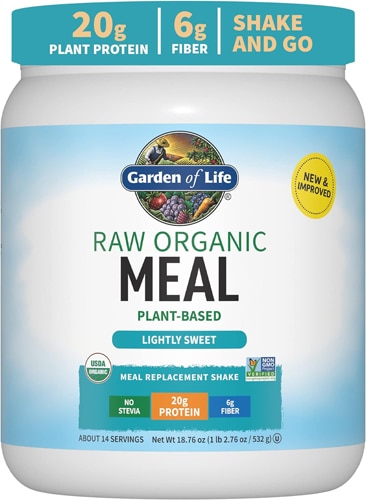[vc_row][vc_column][vc_column_text]You're on your weekly shopping trip. You reach for a loaf of whole-wheat bread and flip it over to check the ingredients. It seems healthy enough—until you spy "soy lecithin."
"Wait," you think. "Isn't it bad for me? What's it doing in whole-grain bread?"

Soy lecithin is just one in a class of ingredients called emulsifiers that has come under scrutiny for its possible negative impacts—particularly on gut health. A
recent report from the U.S. Department of Health & Human Services (HHS) called out emulsifiers for their potential to disrupt the microbiome, damage the intestinal lining and trigger inflammation.
Yet these
additives are widespread in the food system. As
one of the most common ingredients in packaged foods, particularly ultra-processed foods, emulsifiers probably show up on your plate more often than you realize.
Why are emulsifiers in food?
Emulsifiers have a purpose: to
form a suspension between liquids that wouldn't normally mix, typically water and oil. Emulsifying ingredients
create a border between the liquids so the suspension, called an emulsion, stays stable.
Forming emulsions in food helps
prevent ingredients from separating, extends shelf life and improves texture and flavor. It's the reason why, for example, that bottle of salad dressing you forgot about in the back of your cabinet never became solid mass of cream with three inches of oil floating on top.
The most common types of emulsifiers
Emulsifiers can be natural or man-made. Natural emulsifiers have been
used in food since the days of ancient Greece, but synthetic emulsifiers didn't become widespread
until the late 20th century. Over 170 of these ingredients are currently used as food additives in the United States in everything from ice cream, salad dressing and cream sauces to bread, chocolate and nut butters.
The FDA maintains
a detailed database of emulsifying ingredients, but these are the ones you'll most commonly see in food labels:
Over half the calories consumed at home in the U.S. come from
ultra-processed foods that often contain one or more of these ingredients.
Are emulsifiers bad for gut health?
Whether consuming emulsifiers can disrupt gut health is up for debate. Regulatory bodies like the U.S. Food and Drug Administration (FDA) and the EU European Food Safety Authority (EFSA)
assess the safety of emulsifying ingredients and assign each an acceptable daily intake (ADI) limit—the amount you can eat in a day without potentially negative effects.
Regardless of the ADI, many emulsifiers
aren't absorbed during digestion, so they may travel to your gut and interact with your microbiome. Some of these interactions appear to promote changes in the gut's environment and structure.
How food emulsifiers affect the gut
Recent studies of emulsifiers like carboxymethylcellulose (CMC), polysorbate 80, DATEM, lecithin and gums suggest that these additives have the potential to cause
long-lasting or non-reversible effects in the gut microbiome, including:
- Reduced density (the overall number of bacteria), richness (the total number of bacterial species) and diversity (the range of different kinds of bacteria)
- Reduced levels of beneficial microbes like Lactobacillus, Faecalibacterium and Akkermansia
- Increased pathogenic bacteria like Escherichia and Shigella
- Bacterial imbalances or overgrowth (dysbiosis)
- Altered expression of bacterial genes
Emulsifiers may also cause changes in the layer of mucus that protects the gut lining and the junctions between cells in the gut barrier. Together,
these effects can alter gut function and lead to problems like systemic inflammation, colitis, blood sugar imbalances, increased fat mass and non-alcoholic fatty liver disease (NAFLD).
Additional evidence suggests that emulsifier consumption may be linked to:
These associations were discovered through the French NutriNet-Santé cohort study, which has been assessing the connection between nutrition and health in a group of
over 100,000 people since 2009.
Does avoiding emulsifiers improve gut health?
However, many studies on emulsifiers have been done either in animals or simulations of the human gut. The limitations of these studies make it difficult to determine whether eliminating emulsifiers from your diet is necessary for gut health.
Different emulsifiers appear to impact the gut in different ways, and some don't cause any noticeable changes. Certain emulsifiers have even been
linked to health benefits, including lower pro-inflammatory markers, improved gut barrier structure and increased numbers of beneficial bacteria. These mixed results may be due to factors like dietary habits and the amounts and types of bacteria in the microbiome, which can influence how emulsifiers impact the gut.
Adjusting your diet to reduce emulsifiers
Rather than driving yourself crazy trying to eliminate every emulsifier from your diet, focus on swapping ultra-processed foods with more whole and minimally processed foods. Making these changes reduces your intake of ingredients associated with
poor gut health, increased inflammation and chronic disease and fills your plate with more
high-fiber, anti-inflammatory foods that support a
balanced microbiome and strong intestinal barrier.
To get started with a more gut-friendly diet:
- Experiment with a wide range of vegetables, whole grains, beans, nuts, seeds, fruits and seafood
- Cook more food at home instead of eating out
- Make your own condiments, sauces and salad dressings from simple ingredients you already have around the house
- Look for minimally processed alternatives to snacks, desserts and other treats (Hint: Fruit makes a great snack!)
As for that whole wheat bread, whether you put it back is up to you. But it's likely that you don't have to be concerned about the emulsifier if the majority of your diet focuses on foods that promote a healthy gut.
So go enjoy a sandwich![/vc_column_text][/vc_column][/vc_row][vc_row][vc_column][vc_text_separator title="Featured Products" border_width="2"][vc_row_inner equal_height="yes" content_placement="middle" gap="35"][vc_column_inner width="1/3"][vc_single_image image="185808" img_size="full" alignment="center" onclick="custom_link" img_link_target="_blank" css=".vc_custom_1750887955184{padding-right: 7% !important;padding-left: 7% !important;}" link="https://www.vitacost.com/dr-emil-nutrition-total-gut-complex-prebiotic-probiotic-postbiotic-gut-health"][/vc_column_inner][vc_column_inner width="1/3"][vc_single_image image="185809" img_size="full" alignment="center" onclick="custom_link" img_link_target="_blank" css=".vc_custom_1750887974255{padding-right: 7% !important;padding-left: 7% !important;}" link="https://www.vitacost.com/kuli-kuli-gut-bliss-superfood"][/vc_column_inner][vc_column_inner width="1/3"][vc_single_image image="185807" img_size="full" alignment="center" onclick="custom_link" img_link_target="_blank" css=".vc_custom_1750887992586{padding-right: 7% !important;padding-left: 7% !important;}" link="https://www.vitacost.com/snap-supplements-gut-health"][/vc_column_inner][/vc_row_inner][/vc_column][/vc_row]
 Soy lecithin is just one in a class of ingredients called emulsifiers that has come under scrutiny for its possible negative impacts—particularly on gut health. A recent report from the U.S. Department of Health & Human Services (HHS) called out emulsifiers for their potential to disrupt the microbiome, damage the intestinal lining and trigger inflammation.
Yet these additives are widespread in the food system. As one of the most common ingredients in packaged foods, particularly ultra-processed foods, emulsifiers probably show up on your plate more often than you realize.
Soy lecithin is just one in a class of ingredients called emulsifiers that has come under scrutiny for its possible negative impacts—particularly on gut health. A recent report from the U.S. Department of Health & Human Services (HHS) called out emulsifiers for their potential to disrupt the microbiome, damage the intestinal lining and trigger inflammation.
Yet these additives are widespread in the food system. As one of the most common ingredients in packaged foods, particularly ultra-processed foods, emulsifiers probably show up on your plate more often than you realize.




